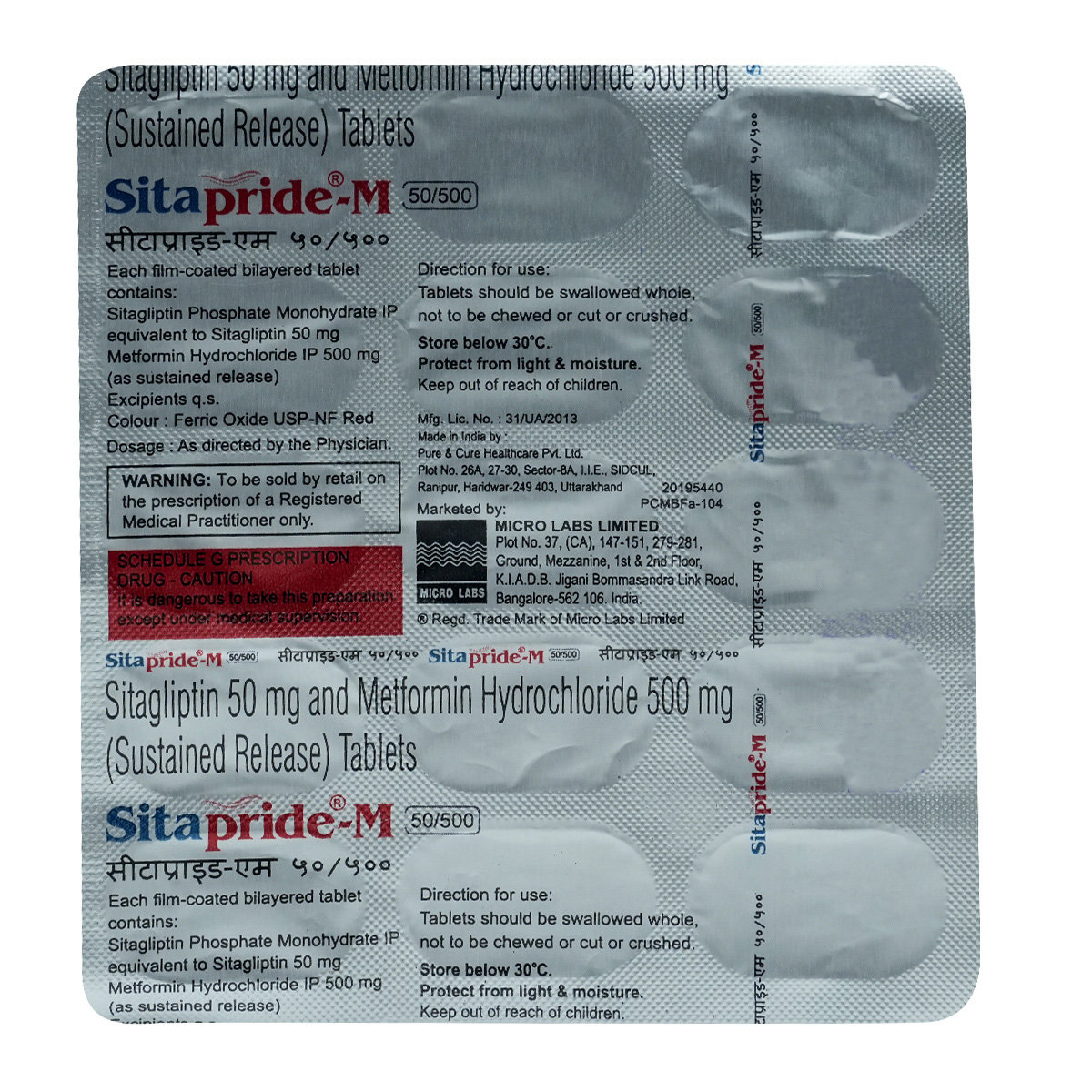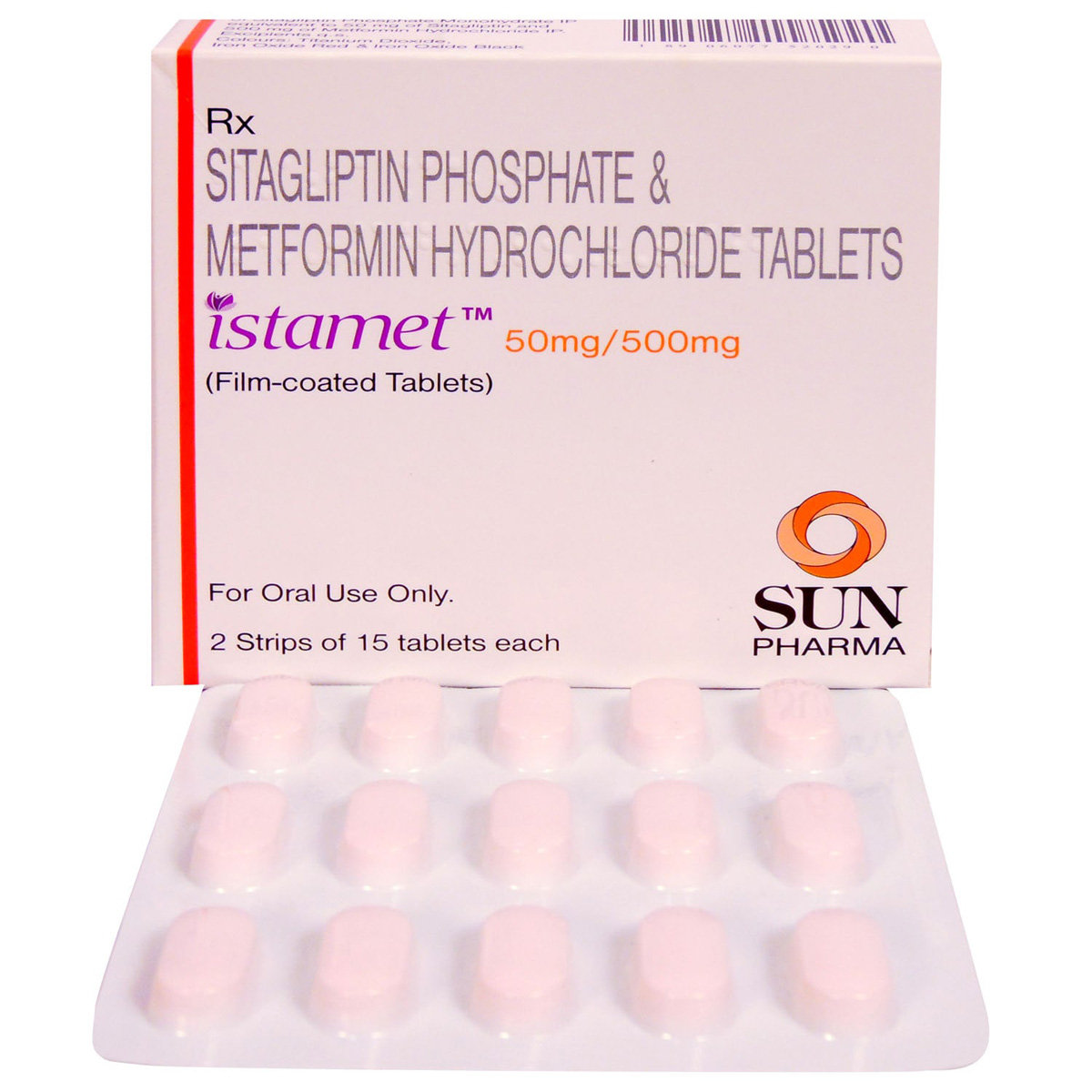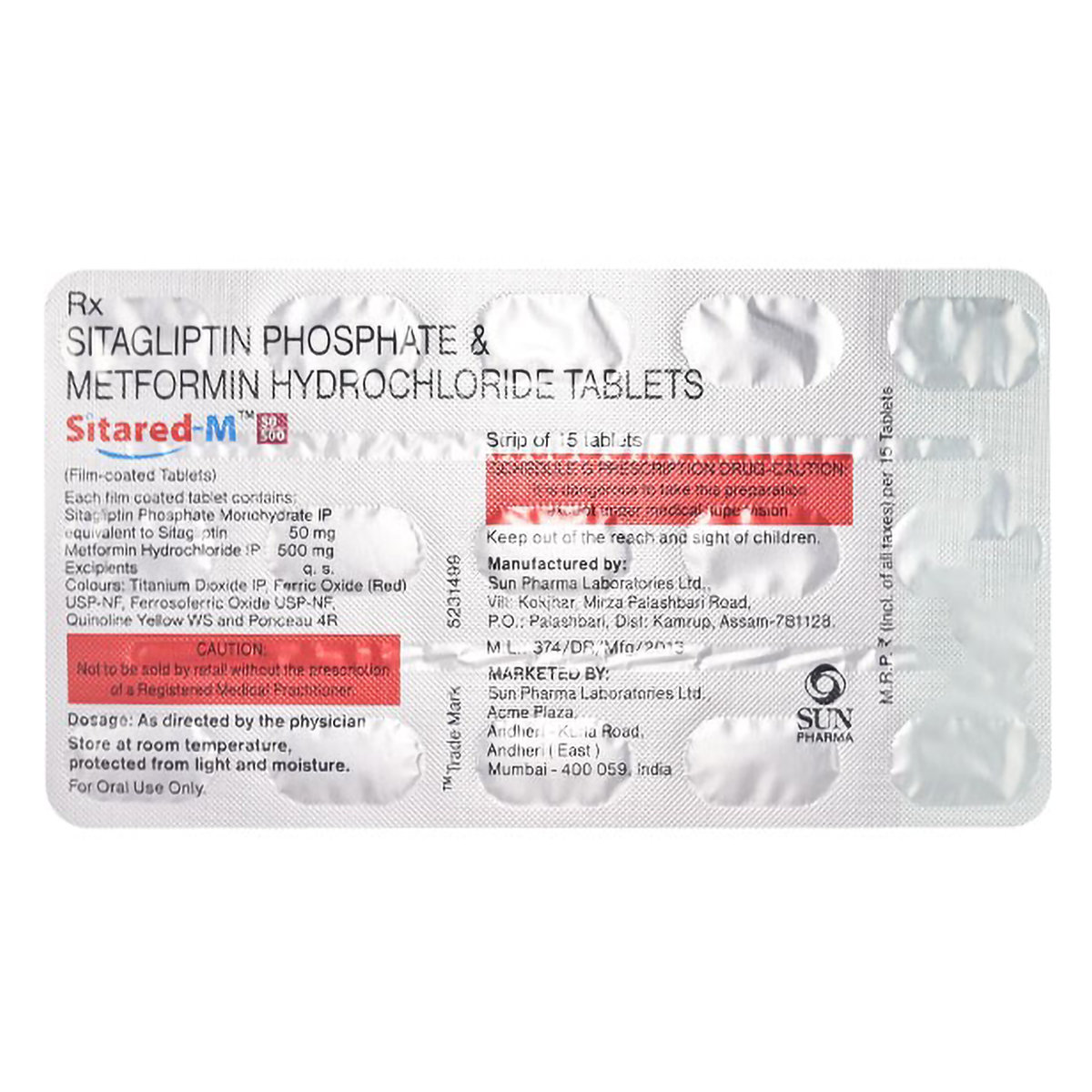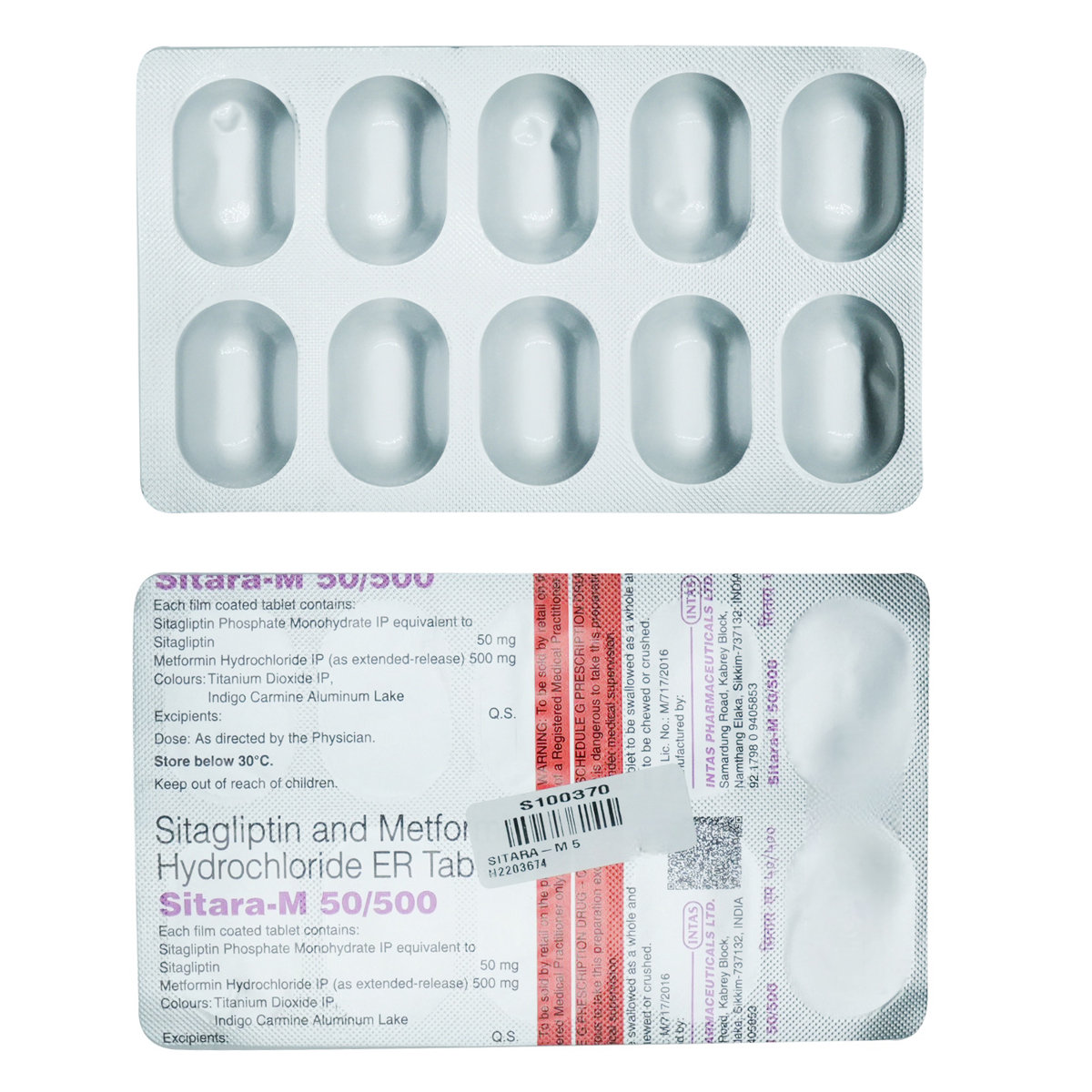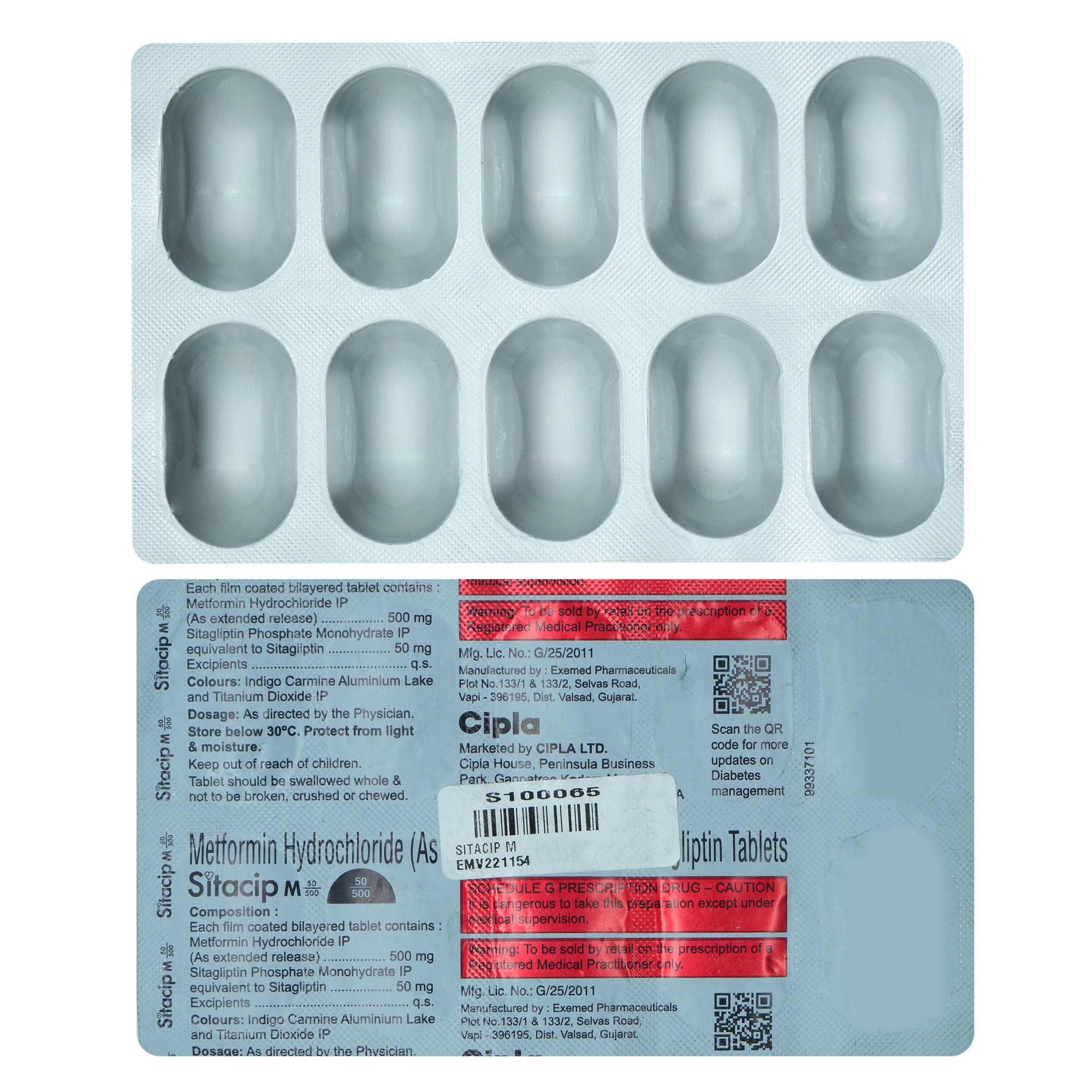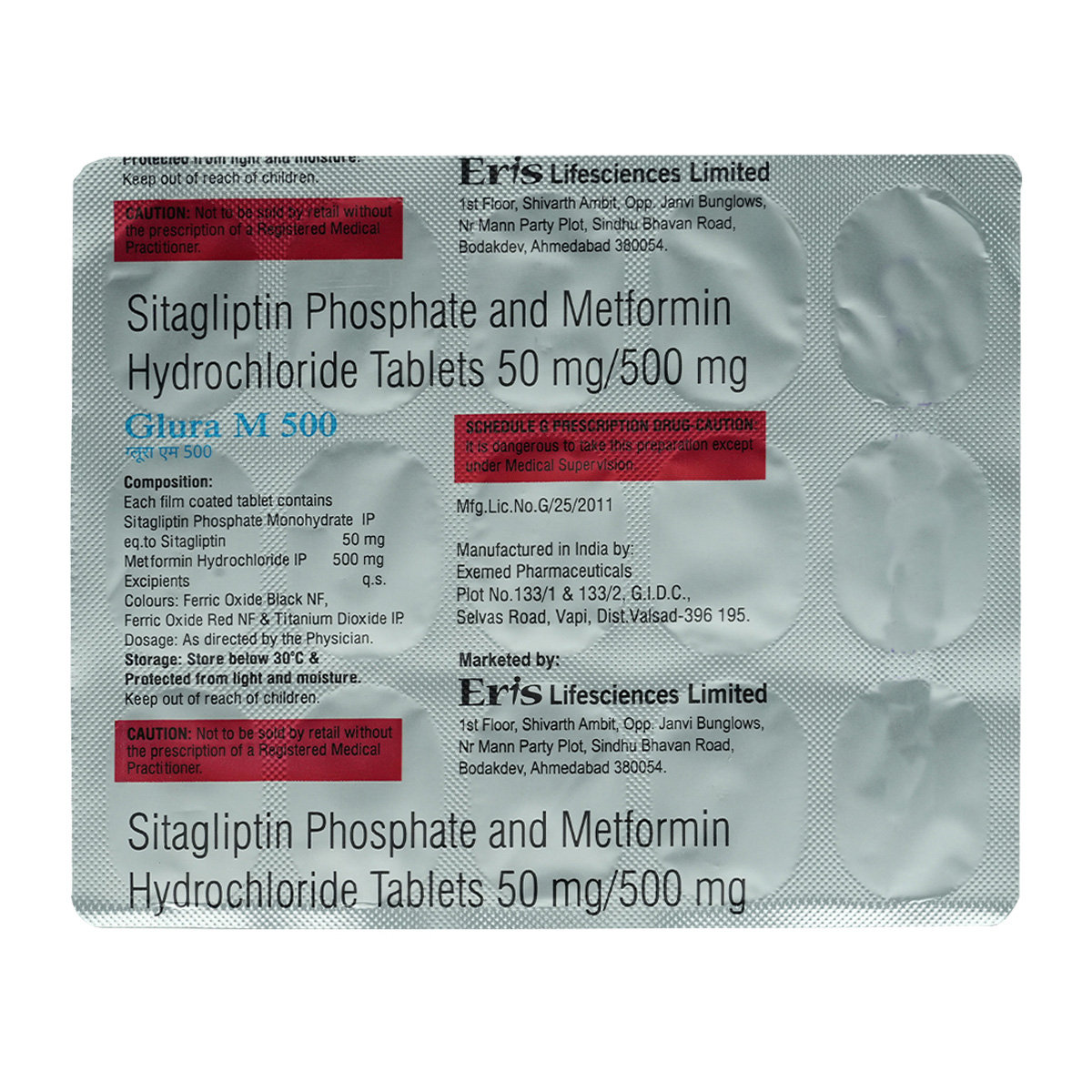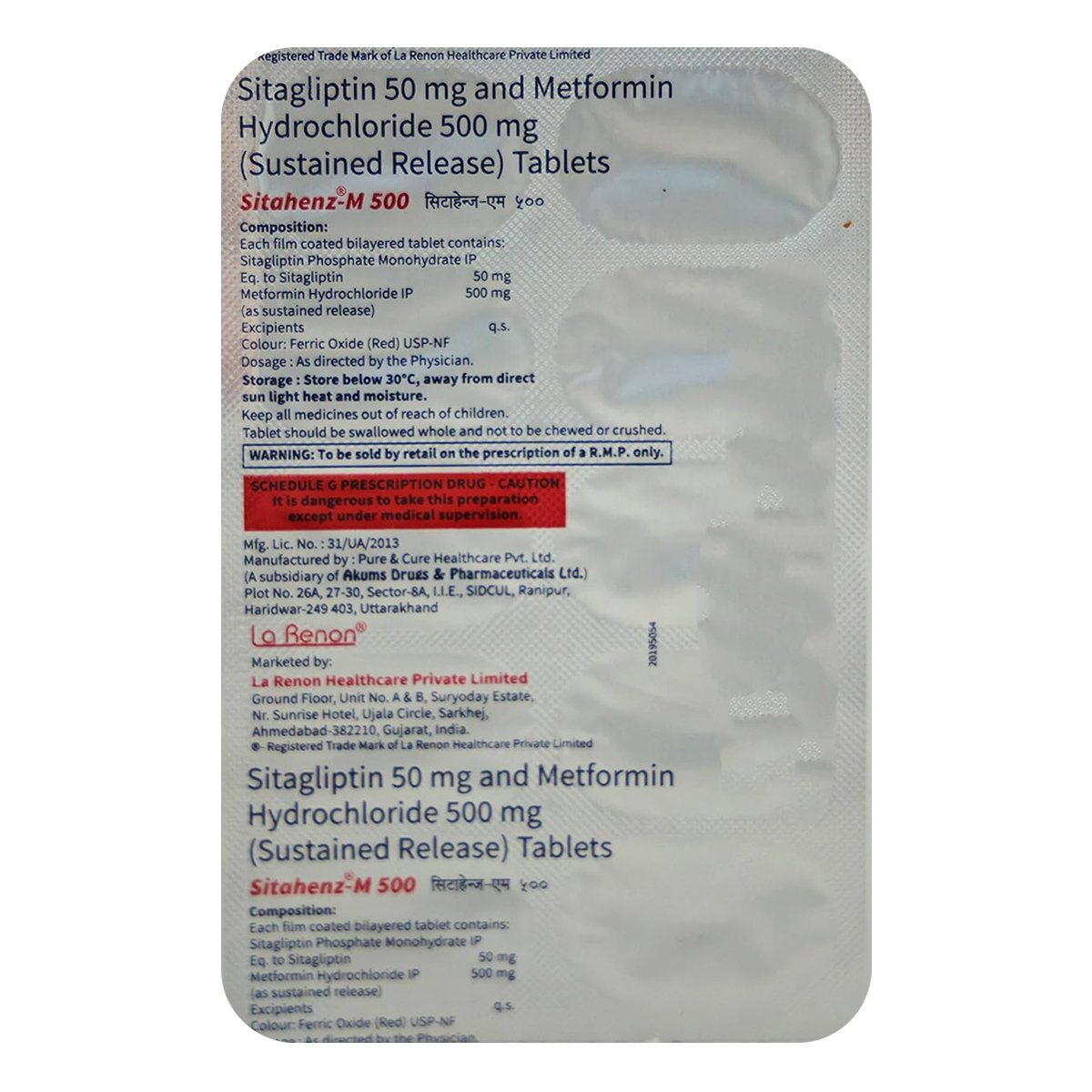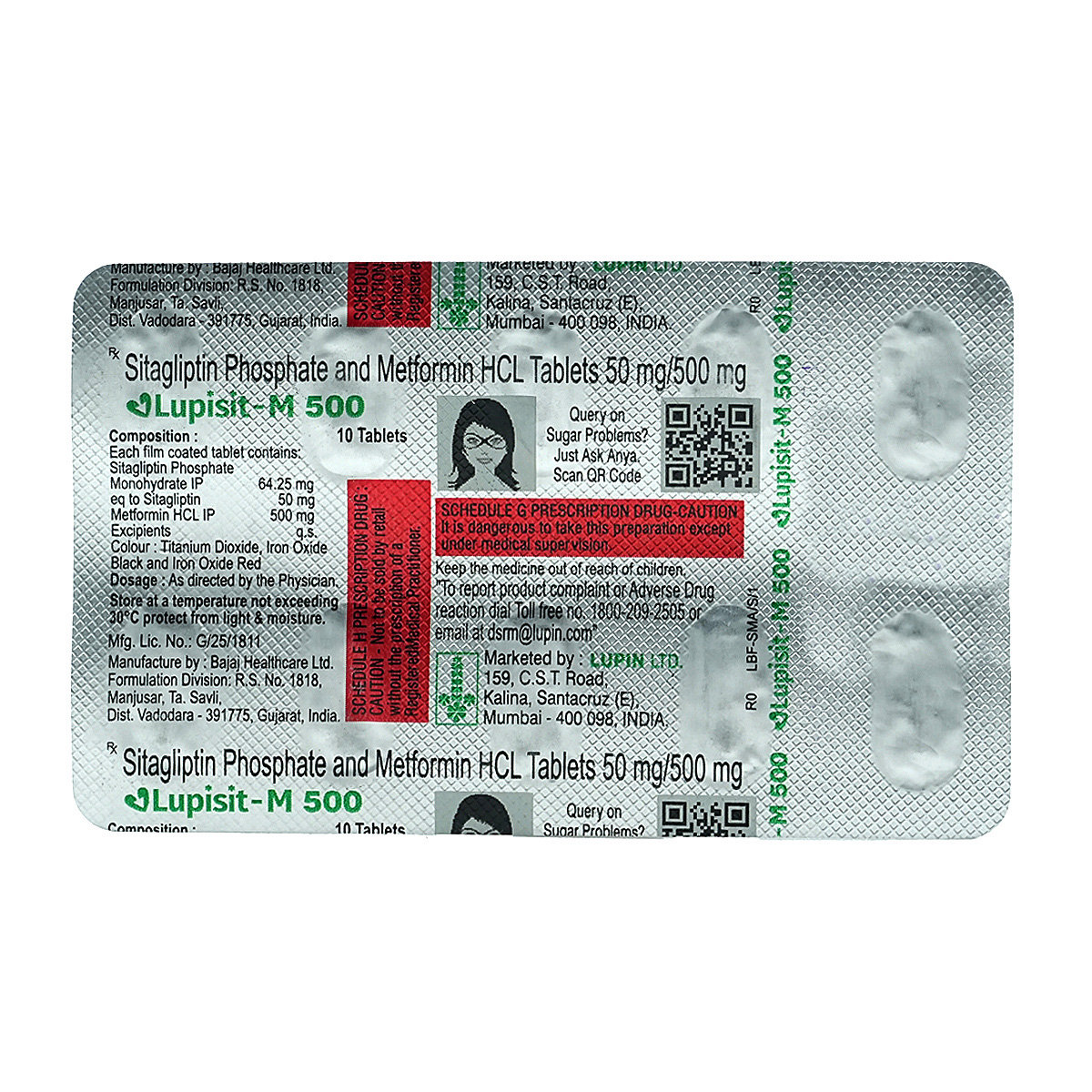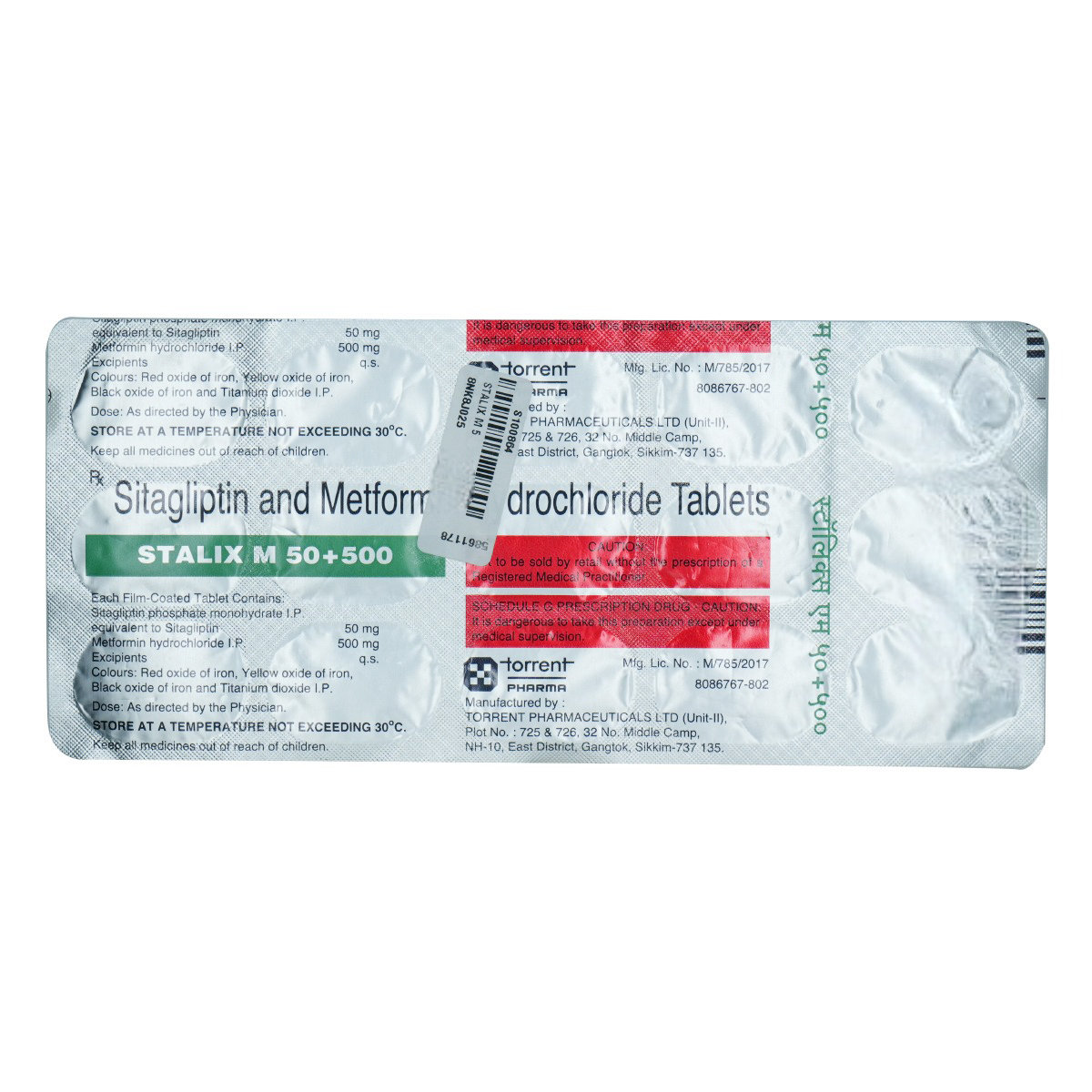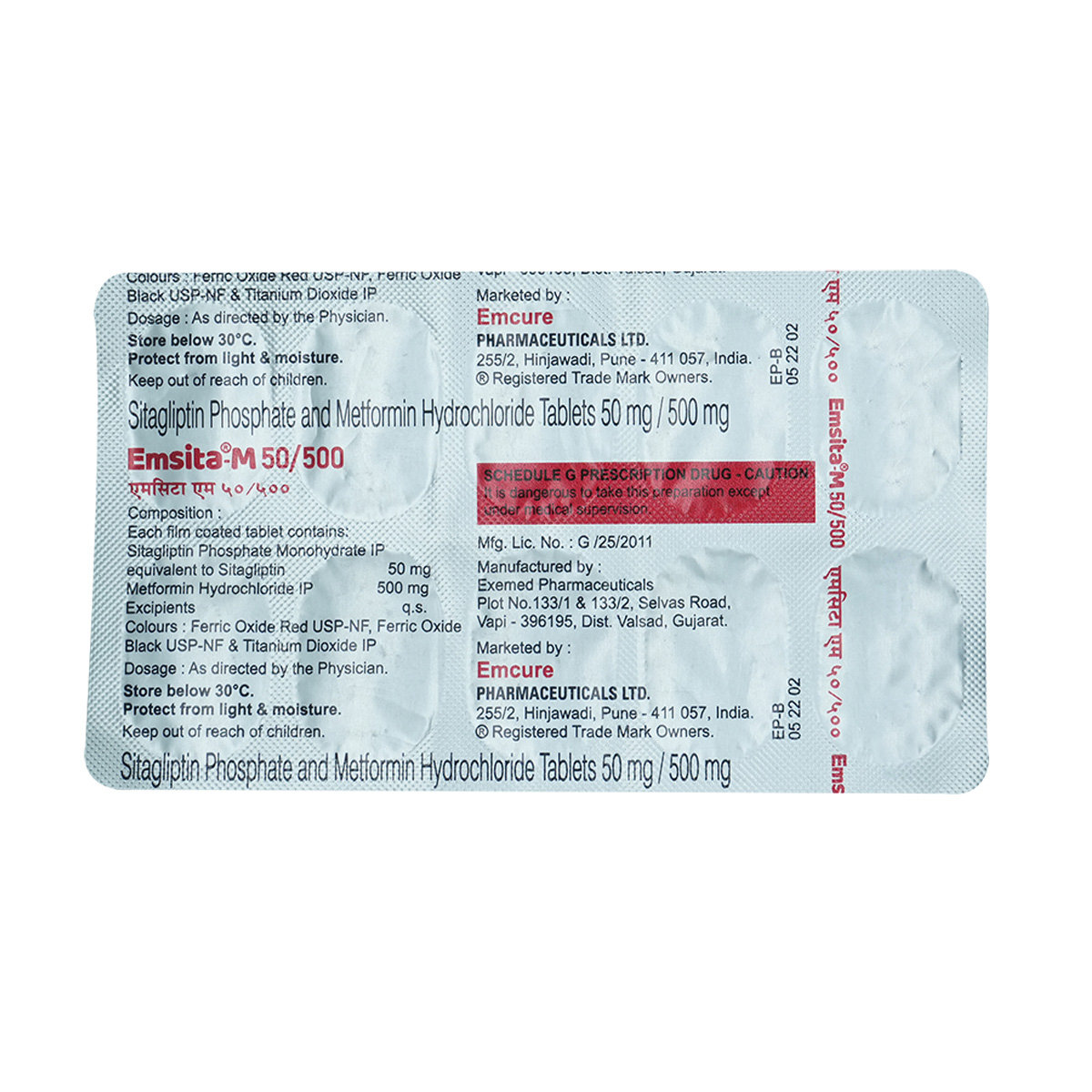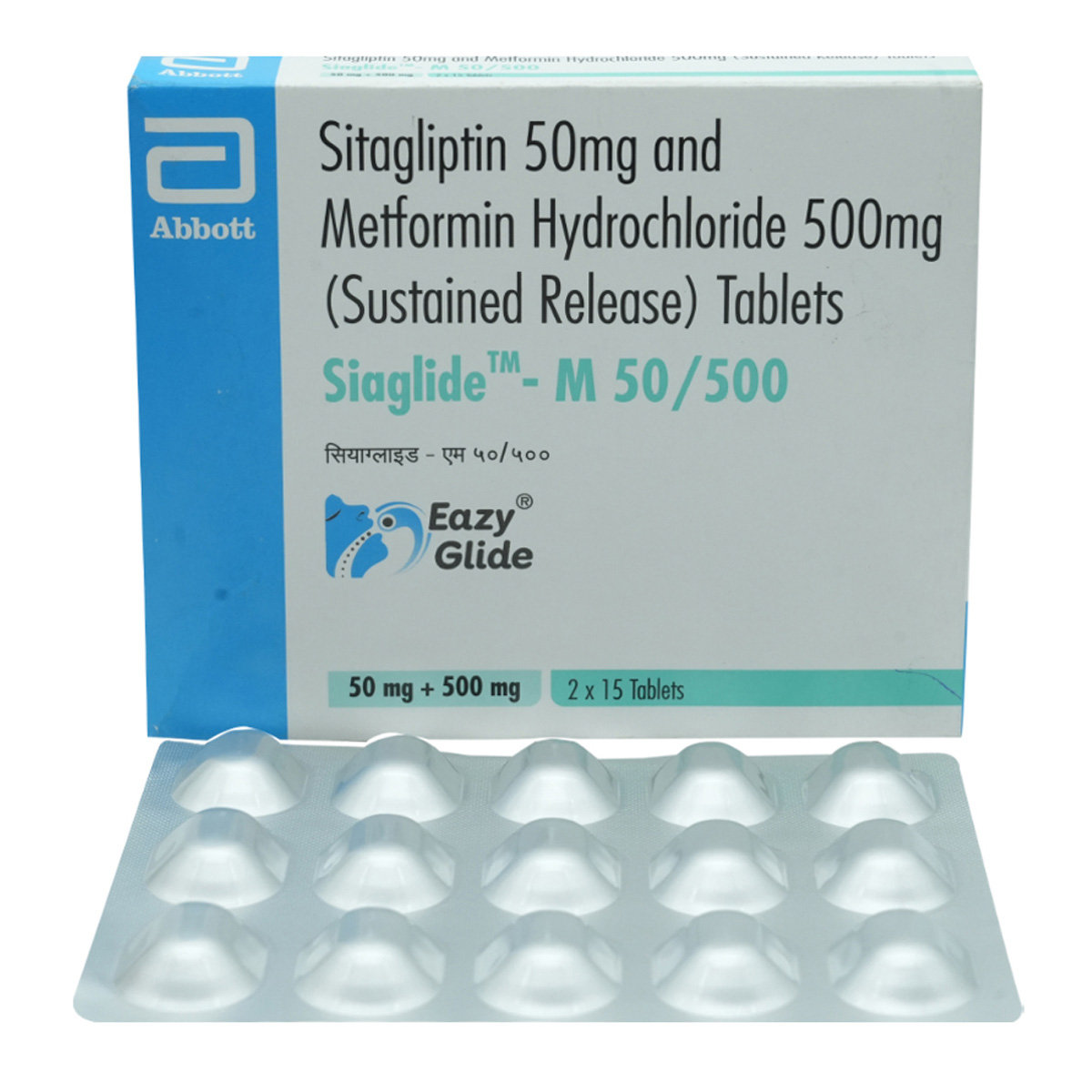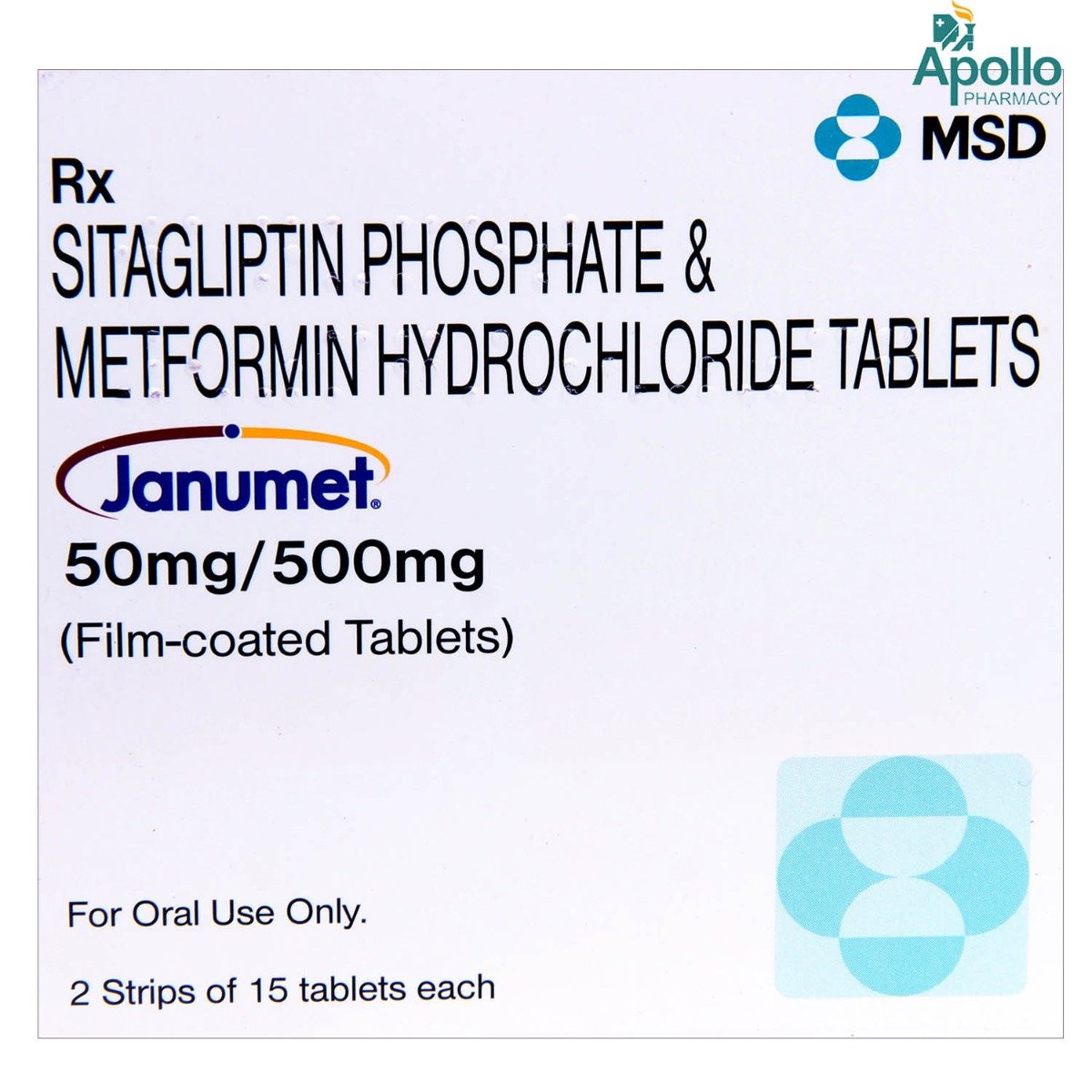Dipsita Met Tablet 10's
Dipsita Met Tablet is a combination drug of Sitagliptin (DPP4 inhibitors) and Metformin (Biguanides) belongs to the class of anti-diabetic. Type 2 diabetes is a condition in which either the body stops producing enough insulin (the hormone which helps to decrease sugar levels in the blood) or there is resistance to the action of insulin. As a result, insulin is produced in large amounts but it is not able to act on the organs of the body.


MRP ₹103
(Inclusive of all Taxes)
₹15.4 Cashback (15%)
Provide Delivery Location
Online payment accepted
 Prescription drug
Prescription drugWhats That
Composition :
Manufacturer/Marketer :
Consume Type :
Expires on or after :
Return Policy :
About Dipsita Met Tablet
Dipsita Met Tablet is a combination drug of Sitagliptin (DPP4 inhibitors) and Metformin (Biguanides) belongs to the class of anti-diabetic. Type 2 diabetes is a condition in which either the body stops producing enough insulin (the hormone which helps to decrease sugar levels in the blood) or there is resistance to the action of insulin. As a result, insulin is produced in large amounts but it is not able to act on the organs of the body.
Sitagliptin belongs to the class of dipeptidyl peptidase-4 (DPP-4) inhibitors which works by increasing the amounts of certain natural substances that lower blood sugar when it is high. Another medicine Metformin belongs to the class of biguanides which lowers glucose production in the liver, delays glucose absorption from intestines and increases the body's sensitivity to insulin. Together, it prevents blood glucose levels from rising to very high levels after meals.
Dipsita Met Tablet should be taken with food to avoid an upset stomach. Dipsita Met Tablet should be taken at the same time of the day each time for best results. For better advice, your doctor will decide, what dose should be taken and it can change timely depending upon your condition. The most common side effect of Dipsita Met Tablet is hypoglycemia (low blood glucose levels) characterised by dizziness, sweating, palpitations, hunger pangs, dry mouth and skin etc. So, to avoid hypoglycemia, you should not miss meals and also should carry some form of sugar along with you. Other side effects include taste change, nausea, diarrhoea, stomach pain, headache, upper respiratory symptoms.
Dipsita Met Tablet should not be stopped even if you feel better, without consulting your doctor as sugar level keeps changing. If you stop taking Dipsita Met Tablet abruptly, it may increase your sugar levels which could further increase the risk of eyesight loss (retinopathy), kidney (nephropathy) and nerve damage (neuropathy). Dipsita Met Tablet should not be taken if you have type 1 diabetes mellitus, severe kidney or liver disease. Please inform your doctor if you have any type of heart disease, is or planning to get pregnant or breastfeeding.
Uses of Dipsita Met Tablet
Directions for Use
Swallow it as a whole with water; do not crush, break or chew it.
Key Benefits
Dipsita Met Tablet helps your pancreas to produce more insulin, make effective utilization of insulin, and decreases excess of sugar that your liver makes. It helps in controlling rise of blood sugar level in your body after meal. Besides this, it does not cause weight gain in the prolonged use. Dipsita Met Tablet plays a vital role in controlling blood sugar levels and prevents serious complications of diabetes like eyesight loss (retinopathy), kidney (nephropathy), nerve damage (neuropathy), diabetic foot ulcer and delayed wound healing.
Storage
Drug Warnings
Dipsita Met Tablet should not be used in patients with type 1 diabetes or with diabetic ketoacidosis. Some diabetic patients, while taking Dipsita Met Tablet , might develop a rare but serious condition called lactic acidosis. In this condition, too much lactic acid is accumulated in the blood, which can damage the working of your liver and kidney required to eliminate excess lactic acid from the blood. Before you start taking Dipsita Met Tablet , tell your doctor if you’ve ever had pancreatitis (inflammation of the pancreas), kidney disease, and low vitamin B12 levels. Dipsita Met Tablet , when used with insulin, Dipsita Met Tablet may lower the blood sugar level, leading to hypoglycaemia, which can be fatal. In this case, your doctor may adjust the dose by lowering the insulin dose or Dipsita Met Tablet . Prolonged intake of Dipsita Met Tablet may lower your thyroid-stimulating hormone (TSH); hence, an annual check-up of TSH is recommended. In rare cases, you may also develop a serious skin reaction known as bullous pemphigoid that requires immediate medical attention. Tell your doctor if you are going to have a diagnostic test with an injection of dye or X-ray contrast agent. You should stop using Dipsita Met Tablet for a short time before an X-ray procedure.
Diet & Lifestyle Advise
- Fill your half plate with starchy veggies, a quarter with proteins, and a quarter with whole grain.
- Eat at regular intervals. Do not take a long gap between a meal or snack.
- Monitor your blood sugar level regularly especially when there are lots of fluctuations.
- Invest at least 150 min of moderate-intensity physical activity or one hour and 15 minutes of high-intensity exercise every week.
- Lose weight gradually to achieve a healthy body mass index (18.5 to 24.9).
- Replace refined carbohydrates-containing foods with whole grain foods and increase the intake of fruits and veggies and other fibre-enriched foods.
- Reduce intake of saturated fat (or hidden fats) in food like chips, crisps, pastries, biscuits, and samosas. Choose omega-3 fatty acid-containing oils for daily cooking. For frying, you can use palm oil, mustard oil, groundnut oil, rice bran oil, and safflower oil.
- Do not take stress as it may elevate your blood sugar level. You can adopt stress management techniques like mindfulness to control stress-related blood sugar changes.
- Opt for low-fat dairy products (low-fat yoghurt, fat-free milk, cheese, etc.).
- Keep your blood pressure as normal (140/90) as possible. As it reduces the risk of cardiovascular diseases in diabetes patients.
Side Effects of Dipsita Met Tablet
Low blood sugar
Runny nose
Sore throat
Upper lung infection
Diarrhoea
Nausea
Vomiting
Gas
Stomach upset
Indigestion
General weakness
Headache
Habit Forming
Therapeutic Class
All Substitutes & Brand Comparisons
RX
Sitapride M 50 mg/500 mg Tablet 15's
Micro Labs Ltd
₹139.5
(₹8.37 per unit)
9% CHEAPERRX
Alsita-M 50 Tablet 10's
Alkem Laboratories Ltd
₹100
(₹9.0 per unit)
2% CHEAPERRX
Istamet 50 mg/500 mg Tablet 15's
Sun Pharmaceutical Industries Ltd
₹160
(₹9.6 per unit)
3% COSTLIER
Product Substitutes
Author Details
We provide you with authentic, trustworthy and relevant information
FAQs
Sitagliptin belongs to the class of dipeptidyl peptidase-4 (DPP-4) inhibitors which work by increasing the amounts of certain natural substances that lower blood sugar when it is high. Another medicine Metformin belongs to the class of biguanides which lowers glucose production in the liver, delays glucose absorption from the intestines and increases the body's sensitivity to insulin. Together, it prevents blood glucose levels from rising to very high levels after meals.
If you have symptoms like increased hunger, increased thirst, frequent urination (usually at night), unexplained weight loss, fatigue, blurred vision, slow wound/sores healing, and frequent infections, contact doctor as it can be a condition of type 2 diabetes.
Lactic acidosis is a rare but life-threatening condition when there is too much of lactic acid build up in the bloodstream. Long term intake of Dipsita Met Tablet may lead to lactic acidosis when cells get deprived of the oxygen levels. Symptoms of lactic acidosis include a burning sensation of muscle, muscle ache, fast breathing, nausea, and stomach pain. Immediately contact the doctor in this complication.
In case you feel that your blood sugar level is going down and you are feeling weak, immediately eat sugar candies or drink sugary beverages. It will help to balance the blood sugar level in your body. So, it is advisable to keep sugar candies with you.
Do not take excessive alcohol while taking Dipsita Met Tablet , as this may increase the risk of a life-threatening condition called as lactic acidosis (too much of lactic acid in the body).
No. Dipsita Met Tablet is only prescribed for the treatment of type 2 diabetes also called as 'non-insulin-dependent diabetes'.
Type 2 diabetes is a common form of diabetes in which the blood sugar-lowering hormone called insulin produced by the body does not function properly. Due to this, the blood glucose level increases, and symptoms such as frequent urination, increased thirst, and increased hunger start. Diabetes, if left untreated or not treated properly, can cause long-term complications such as nerve damage, kidney damage, eye damage, foot problems, and also poses a high risk of developing heart diseases.
Drug-Drug Interactions Checker List
- BUPROPION
- CEPHALEXIN
- CIPROFLOXACIN
- CIMETIDINE
- DIGOXIN
- DOLUTEGRAVIR
- GLYCOPYRROLATE
- TOPIRAMATE
- LAMOTRIGINE
- RANOLAZINE
- ALPHA LIPOIC ACID
- ASPIRIN
- PROTHIONAMIDE
- PEGVISOMANT
Disease/Condition Glossary
Type 2 diabetes is a condition where the body is unable to make sufficient insulin, or the insulin that it makes doesn't work properly or utilized by our body. This can cause high blood sugar levels (hyperglycaemia). Symptoms of type 2 diabetes include increased thirst, frequent urination at night, slow wound healing, increased hunger, fatigue, and blurred vision. In some cases, there may be weight gain while in rare cases weight loss may be observed. The complication of type 2 diabetes also includes neuropathy (nerve problems), nephropathy (kidney problems), and retinopathy (damaged retina of eyes or blindness), loss of limbs, sexual dysfunction, and an increase the chance of heart attack or stroke.

Have a query?
Alcohol
Safe if prescribed
It is best to avoid alcohol while taking medication.
Pregnancy
Consult your doctor
Dipsita Met Tablet is only recommended during pregnancy when the benefit outweighs the risk. Please consult your doctor before starting Dipsita Met Tablet if you are pregnant or planning to conceive.
Breast Feeding
Consult your doctor
Consult your doctor; Dipsita Met Tablet should be used in breastfeeding mothers only if the benefits outweigh the risks.
Driving
Safe if prescribed
Drive only if you are physically stable and mentally focussed, If you experience drowsiness after taking these medications you should not drive or operate any machinery or vehicles.
Liver
Consult your doctor
If you have or had a history or evidence of any liver-related diseases, please consult the doctor before taking medicine.
Kidney
Consult your doctor
If you have or had a history or evidence of any kidney-related diseases, please consult the doctor before taking medicine.
Children
Safe if prescribed
It is advisable to consult a doctor before using it.


